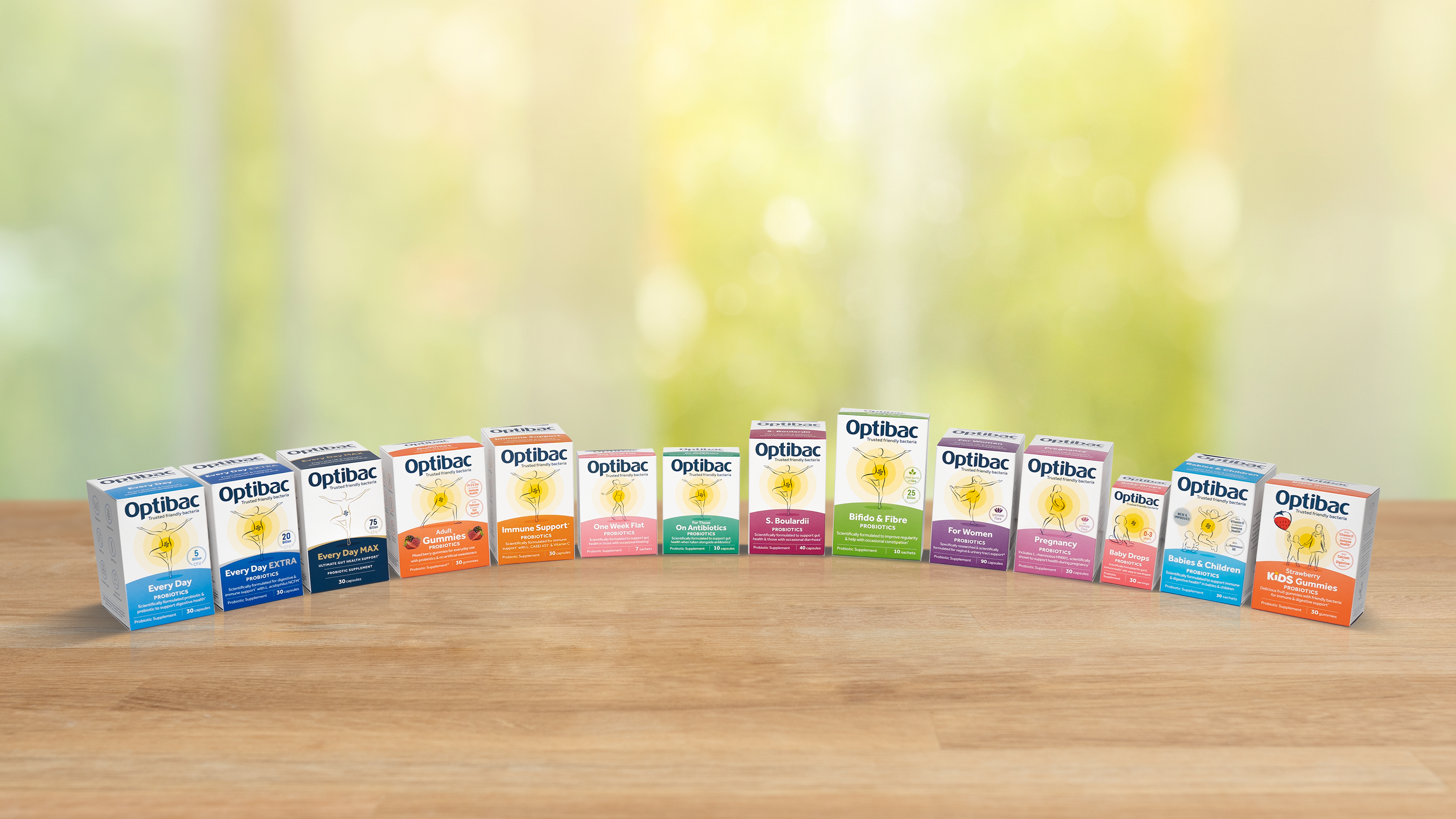Researching Probiotics: Our Tips
A recent study1 has concluded that information about probiotics on Google may not be very accurate. Scientists reportedly typed the term ‘probiotics’ into Google and analysed 150 webpages, and found a lot of commercial sites giving inaccurate information and which often failed to include high quality research.
This is not surprising, as the research into probiotics (and the probiotics market, with it) is booming – there are now so many different probiotic brands, and clinical trials are being published daily. As such, there is much more web content on the subject in the form of blogs, forums, commercial sites, advice pages and articles about probiotics. As with many popular topics, some of the online content is high quality, and much of it, is not! Learn more by reading the article: Research - is it all equal?

So with so much information out there, how can you tell what’s good quality and scientifically correct? To help you find the best sources of information, see my 5 top tips below.
Here, at the Probiotics Learning Lab we love educating people about the microbiome, and take great pride and care in providing non-biased information about probiotics and prebiotics.
Tips to help you identify quality content
- Who is the author - what are their qualifications?
- Is the website simply there to sell products?
- Is it all ‘PRO - Probiotics’?
- What type of research is referenced? Research is not all equal.
- Can you contact a reputable brand?
1. Who is the author - what are their qualifications?Who is the author - what are their qualifications?
Unless you can see that the author is a qualified expert, I wouldn’t take it for granted that the content is trustworthy. Ensure that the author is an expert in that field. At the Probiotics Learning Lab our content writing team includes qualified individuals from the fields of microbiology, nutrition, nutritional therapy, naturopathy and herbal medicine.
2. Is the website simply there to sell products?
Some commercial sites may show bias and make non-scientific claims to sell products, as picked up by the study authors. It doesn’t follow that a commercial site necessarily has poor content, but when you’re browsing information it’s always good to know where it is coming from. If you’re reading a piece about probiotics and a certain health concern, just take a moment to step back and consider if the piece is full of commercial links, product photos and calls to action asking you to click and purchase! This may suggest the information is all geared purely to sell rather than to educate.
At the Probiotics Learning Lab we are affiliated with a brand, and we are open and honest about this fact (see footer on every page). But the brand is committed to education, and this Probiotics Learning Lab is intended to be an impartial educational resource which aims to explore the vast world of probiotics, explaining what live cultures are, where they live in the body. and assessing the research and characteristics of a variety of strains from different brands.
3. Is it all ‘PRO - Probiotics’?
With any supplement (and even medication) there will always be situations when it may not be appropriate for them to be taken. Although probiotics are generally considered to be very safe, there are circumstances in which we at the Probiotics Learning Lab would advise individuals to speak with their doctor before taking a probiotic - for example, those with serious health conditions, or about to undergo surgery. Researchers in this study noted that probiotics aren’t ALWAYS safe (eg. Michel Goldman cites some cases of them being inappropriate for immunodeficient individuals including very-low birthweight newborns). So be wary if you are on a website which claims their probiotic (or indeed any product!) has no side effects, is good for everything, and/or are suitable for absolutely everyone.
4. What type of research is referenced? Research is not all equal.
The study reviewing Google results quite rightly touched on the type of research that was referenced on many sites. Researchers found many of the studies referred to on probiotics websites were ‘in-vitro’ (i.e. lab based) or ‘mice’ (murine) studies. This type of research can be a good start, and can be interesting if no clinical (human) research is available, eg. perhaps in a very niche area of health. But really, when looking for credible sources, you need to look for gold standard human clinical trials involving a large number of people. These gold standard (controlled and blinded) clinical trials help to reduce the risk of bias and chance results. They are a much more reliable than animals studies and make for better, more valuable research. Here at the Probiotics Learning Lab we try to refer to human clinical trials wherever possible. Don’t trust websites which refer to research and suggest it’s clinical (done in humans) when it turns out to be a small rat study. If you’re not confident with reading references and looking them up, why not give the website authors or company a call and ask them to run you through the research cited.
5. Can you contact a reputable brand?
If you ARE going to get your information from a brand, just make sure you find one which is well-established,and trustworthy. To find a reputable brand, you could ask at your local pharmacy or health food store, and don’t forget to search online and look at reviews too. I always recommend looking at reviews off-site too – eg. bloggers or other sites (who haven’t been paid to endorse it!) as well as Amazon or Trustpilot where the reviews are unedited, very minimally moderated, and are collected on a site independently from the brand.
It is clear that probiotic supplements may offer a lot of potential for supporting health in different areas. Just consider when you’re researching, whether your information is from a trustworthy source. I hope these tips help. And if all else fails – don’t forget to ask your healthcare practitioner!

Probiotic Studies
This 2020 study, published in Frontiers in Medicine, has some good points which I would agree with, namely that it’s always important to think about one’s source of information. And don’t believe everything you read on Google!
On the other hand I was a bit disheartened to read suggestions from the study authors that probiotics may not be beneficial for health conditions such as urogenital disorders, IBS and antibiotic associated diarrhoea. At the Probiotics Learning Lab we believe that many aspects of health and wellbeing are associated with gut microbiome. And, there is a lot on research in these areas in particular!
A meta- analysis (review of lots of gold standard clinical trials) found that Saccharomyces boulardii and Lactobacillus rhamnosus GG® were able to reduce diarrhoea from antibiotics in over 3160 individuals2. Another meta-analysis which analysed 27 trials (over 5000 individuals) also found S. boulardii to be beneficial for individuals with IBS, acute diarrhoea and Crohn’s disease3. Healthcare professionals can read more about Saccharomyces boulardii and Lactobacillus rhamnosus GG® on the Probiotics Database.
Or when it comes to urogenital health, Lactobacillus reuteri RC-14® and Lactobacillus rhamnosus GR-1® for example, have been highly researched for intimate health, specifically bacterial vaginosis (BV), thrush and urinary tract infections (UTI’s). One trial investigated the strains in 252 women with recurring UTI’s4. They were given antibiotics or probiotics for a year. The researchers found that number of UTI’s halved in both groups. A different gold standard trial looked at these same 2 probiotic strains on 125 women with BV. The women took an antibiotic for a week with a probiotic or control (dummy) capsule. After antibiotic treatment, they continued with their probiotic or control capsule for a further three weeks. The researchers found that BV cleared up in 40% of individuals taking the antibiotic and control, compared to 88% who took the probiotic. Plus, the vaginal microbiome improved in the probiotic group which may reduce the risk of recurrence5. Healthcare professionals can read more about Lactobacillus reuteri RC-14® and Lactobacillus rhamnosus GR-1® on the Probiotics Database.
Or when it comes to IBS, I think it’s always helpful to consider that there are different types of IBS; some individuals suffer more with abdominal cramps (IBS-A), others with constipation (IBS-C) and others with diarrhoea (IBS-D). As probiotic strains work in different ways, it’s likely that an individual with IBS- C may need a different strain to an individual with IBS-D. Some strains (E.g. S. boulardii mentioned above) can help with IBS-D, whereas other strains, such as Bifidobacterium infantis 35624, have been found6 to help reduce pain and bloating in those with different subtypes of IBS. Healthcare professionals can read about Bifidobacterium infantis 35624 on the Probiotics Database.
There are so many good studies out there, it’s difficult to mention them all!
To learn more about, you may like to read the following articles:
Are all types (strains) of friendly bacteria the same?
References
- Neunez et al., (2020). ‘Online Information on Probiotics: Does it Match Scientific Evidence?’ Fron. Med., doi.org/10.3389/fmed.2019.00296
- McFarland LV., (2006). Meta-analysis of probiotics for the prevention of antibiotic associated diarrhoea and the treatment of Clostridium difficile disease. American Journal of Gastroenterology. 101: 812-822
- McFarland LV et al., (2010). Systematic review and meta-analysis of Saccharomyces boulardii in adult patients. World Journal of Gastroenterology. 16 (18): 2202-2222
- Beerepoot et al., (2012). ‘Lactobacilli vs antibiotics to prevent urinary tract infections: a randomized, double-blind, noninferiority trial in postmenopausal women’. Arch. Intern. Med. 172 (9): 704-12.
- Anukam et al., (2006). Augmentation of antimicrobial metronidazole therapy of bacterial vaginosis with oral probiotic L. rhamnosus Gr-1 and L. reuteri RC-14: a randomised, double blind and placebo-controlled trial. Microbes Infect. 8 (6): 1450-4
- Saha L. (2014). Irritable bowel syndrome: pathogenesis, diagnosis, treatment, and evidence-based medicine. World journal of gastroenterology, 20(22), 6759–6773. doi:10.3748/wjg.v20.i22.6759
Popular Articles
View all Probiotics articles-
Probiotics24 Oct 2023
-
Prebiotics06 Nov 2023
-
Probiotics17 Dec 2024


